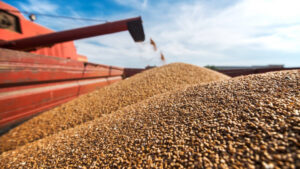
Rumanian Prime Minister Marchel Ciolaku will ask the country’s agriculture and economy ministers to approve a joint resolution to extend the ban on imports of Ukrainian agricultural products for 30 days, RFI quoted the head of the Rumanian government as saying.
Ciolacu said that he expects a proposal from Ukrainian Prime Minister Denis Schmigal on the licensing of grain exports, which will be discussed.
He added that after the European Commission’s decision not to extend the ban on Ukrainian agricultural products, “not a single kilogram of wheat has been imported to Romania from Ukraine.”
“If there are requests for exports to Romania, I will definitely ask the Minister of Agrarian Policy and the Minister of Economy to adopt a joint order that for 30 days, until everything is clarified, the restrictions will be extended. I repeat: there are no requests, and I want to assure the agrarians that it will not be like a year ago,” assured Ciolacu.
As reported, the European Commission announced on September 15 that it would not extend restrictions on imports of agricultural products from Ukraine with some conditions to avoid a new grain surge.
On May 2, the EC imposed a temporary restriction on imports of Ukrainian agricultural products, in particular wheat, rapeseed, sunflower and corn, to five EU member states – Poland, Bulgaria, Hungary, Romania and Slovakia. Those argued that Ukrainian grain was hitting their market and hurting farmers. On June 5, the restrictive measures were prolonged until September 15.
After the restrictions on imports of Ukrainian agricultural products were lifted, Poland, Hungary and Slovakia introduced unilateral bans. Poland expanded the list of products banned for import by adding flour and cereals. Hungary brought the list to 25 items.
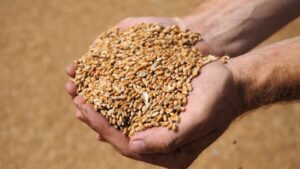
The Slovak government has decided to extend the ban on imports of wheat, corn, rapeseed and sunflower seeds from Ukraine until the end of the year, Prime Minister Ludovit Odor said.
“The European Commission did not extend the ban on imports of four commodities from Ukraine, including wheat, after September 15, so the government decided to ban their imports at the national level. And this is until the end of the year and for the same four products, i.e. wheat, corn, rapeseed and sunflower seeds. We must prevent excessive pressure on the Slovak market to remain fair to domestic farmers,” Odor said, according to Aktuality.
According to him, this step of the government is also a reaction to a similar approach of Poland and Hungary. Odor emphasized that the Slovak government will continue to work intensively with the European Commission and EU member states to find a pan-European and systemic solution while the national ban on imports of these four products is in effect. He stated the government’s readiness to lift the ban in this case.
The Ministry of Agriculture and Rural Development of Slovakia added that this decision is related to the protection of the domestic market and is a logical response to the practice of neighboring countries that adopt unilateral import bans.
“The ban does not apply to the transportation of goods through our territory, which expresses our solidarity with Ukraine and the placement of its goods in target markets,” the ministry added.
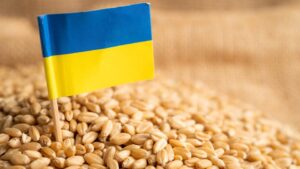
Hungary has decided to extend the ban on imports of 24 types of agricultural products from Ukraine that are under its national jurisdiction, Hungarian Agriculture Minister Istvan Nagy said on his Facebook page on Friday.
The Minister argued that this was to protect the interests of Hungarian farmers.
As reported, the European Commission did not extend the ban on exports of certain agricultural products from Ukraine to five countries after September 15, but Poland has also announced its unilateral extension.
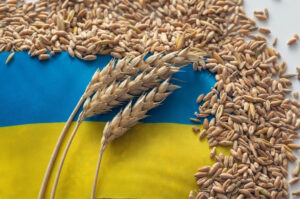
Following the meeting of the coordination platform on Ukrainian grain exports, no decision was made on whether or not to extend the current temporary ban on grain imports to Poland, Hungary, Romania, Slovakia and Bulgaria, which expires on September 15.
This was reported to Interfax-Ukraine on Wednesday after the 9th meeting of the joint coordination platform, chaired by the head of the cabinet of the Vice President of the European Commission Valdis Dombrovskis, Mr. Hager.
According to her, the first part of the meeting was attended by representatives of five member states, Ukraine, the Republic of Moldova and the Commission. “The Commission presented the latest forecasts of the market situation in terms of harvest, trade and prices. Countries were invited to share the latest information. The platform also discussed how to increase storage capacity and reduce border crossing time. Finally, they exchanged views on short-term actions to facilitate trade flows and on ways to support transport,” the EC representative said about the content of the first part of the platform meeting.
According to Garcia, the second part of the meeting, which was attended by representatives of Estonia, Latvia, Lithuania, Greece, Italy and Croatia, was devoted to alternative routes.
“In the context of this meeting, the Commission informed that no decision has yet been made on preventive measures, the phased abolition of which is scheduled for September 15, 2023. In any case, the Platform will continue to meet regularly and monitor grain imports from Ukraine,” the European Commission representative stated.
As you know, in May 2022, the EU decided to temporarily suspend import duties, quotas and trade remedies on Ukrainian exports to the European Union – known as autonomous trade measures – to help alleviate the difficulties faced by Ukrainian producers and exporters after the Russian invasion. At the same time, following logistical problems in Bulgaria, Hungary, Poland, Romania, and Slovakia caused by imports of wheat, corn, rapeseed, and sunflower seeds originating in Ukraine, exceptional and preventive measures on their imports came into force on May 2, 2023, and were extended on June 5.
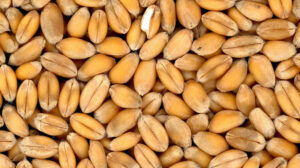
The European Commission may extend for another two months the embargo on imports of Ukrainian grain, including wheat, corn, rapeseed and sunflower seeds, to Poland, Hungary, Romania, Slovakia and Bulgaria.
A source close to the negotiations told Interfax-Ukraine on Wednesday in Brussels.
As you know, a meeting of the coordination platform is taking place in Brussels on Wednesday with the participation of the countries concerned.
“It is proposed to extend the ban on imports of Ukrainian grain for two months. It is not yet known when the official decision will be made,” he said.
At the same time, the deadline for the ban on Ukrainian grain imports expires on September 15.
As you know, in May 2022, the EU decided to suspend import duties, quotas and trade remedies on Ukrainian exports to the European Union – known as autonomous trade measures – to help alleviate the difficulties faced by Ukrainian producers and exporters after the Russian invasion. At the same time, following logistical problems in Bulgaria, Hungary, Poland, Romania, and Slovakia caused by imports of wheat, corn, rapeseed, and sunflower seeds originating in Ukraine, exceptional and preventive measures on their imports came into force on May 2, 2023, and were extended on June 5.
A day earlier, on September 12, European Commissioner for Agriculture Janusz Wojciechowski spoke in the European Parliament about the need to maintain the ban on imports of wheat, corn, rapeseed and sunflower seeds from Ukraine to Bulgaria, Hungary, Poland, Romania and Slovakia. According to him, this decision has proved to be effective and should be extended after September 15 with the simultaneous expansion of the Solidarity Roads for the transit of these Ukrainian products. “We have found a solution that, firstly, stabilized the market in these (five) countries, and, secondly, allowed us to increase transit from 2.9 million tons before the ban from Ukraine to 3.2 million tons after the ban was introduced,” he said.
According to the EC, 44 million tons of agricultural products have already been transported from Ukraine via the road and rail “Solidarity Roads” of these countries, and according to current forecasts for this marketing year 2023-2024, Ukraine needs to export 56 million tons of grain, or 4.7 million tons on average per month. “The Black Sea is blocked, and no one knows if it will be unblocked by Russia. Russia knows what it is doing in this regard, what criminal activities it is conducting, and it is using food as a weapon. But we are able to help Ukraine export these 4.7 million tons by land through the Solidarity Corridors. We just need to improve and expand these corridors,” the European Commissioner emphasized.
Wojciechowski mentioned Baltic ports as new routes: Lithuania, Klaipeda, Riga, and the ports of the Adriatic, as Romania is practically unable to increase transit.
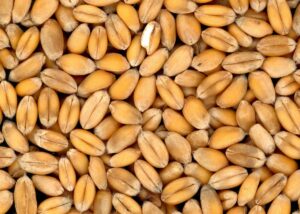
Poland will not allow grain imports from Ukraine after September 15, as the interest of Polish farmers is more important to the country’s government than any EU rules on this issue, said Polish Minister of Agriculture and Rural Development Robert Telusz.
“We know what could have happened if grain (from Ukraine) had arrived in Poland after September 15. Especially since the price of grain is currently low, and the granaries are already full. We know that this is in our interest and we will defend it. That is why I am going to Spain with this message to the summit of agriculture ministers,” the Polish publication farmer.pl quoted him as saying during the National Agricultural Exhibition in Czestochowa last Sunday.
Telusz informed the public that on Monday he will visit Spain, where he will convince the European Union to extend the ban on grain imports from Ukraine to the EU until the end of 2023 after September 15, together with representatives of other frontline countries – Hungary, Bulgaria, Slovakia, and Romania.
“When the war in Ukraine broke out, Polish society, including farmers, became the saviors of the Ukrainian cause. (…) Polish society became a lifesaver. Today in Brussels, we are loudly declaring: a dead rescuer is a bad rescuer. We will not allow the Polish farmer to lose because of arbitrary decisions of officials from Brussels,” said Deputy Minister of Agriculture Krzysztof Ciezora.
According to Janusz Kowalski, the State Secretary of the Ministry of Agriculture, the Polish government has supported Polish farmers to the tune of EUR 3.181 billion, while the amount of financial support from the European Commission is only EUR 63.614 million.